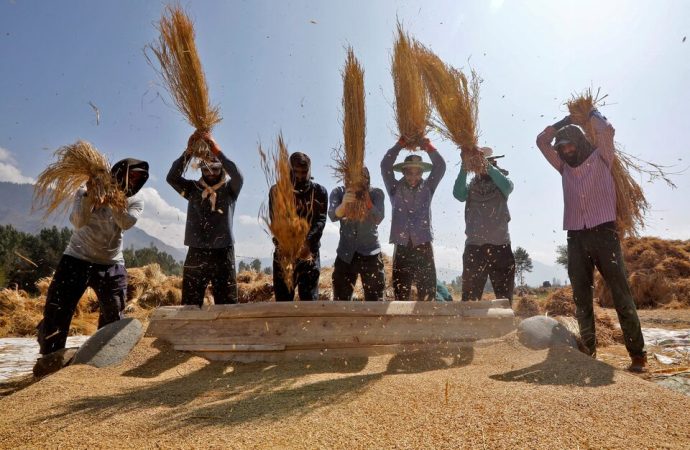India has officially removed the minimum export price (MEP) for basmati rice, a move aimed at boosting overseas sales and supporting farmers facing financial challenges. The decision, announced on Friday through a government order, comes just weeks before the arrival of the new-season basmati crop. Previous Minimum Export Price In 2023, India had set an
India has officially removed the minimum export price (MEP) for basmati rice, a move aimed at boosting overseas sales and supporting farmers facing financial challenges. The decision, announced on Friday through a government order, comes just weeks before the arrival of the new-season basmati crop.
Previous Minimum Export Price
In 2023, India had set an MEP of $1,200 per metric ton for basmati rice exports, later reducing it to $950 per ton. However, as supplies improved, rice exporters called for a further reduction or removal of the MEP. They argued that maintaining the floor price could leave farmers with large stocks of unsold rice when the new crop is harvested in about a month.
Exporters Welcome the Decision
Satish Goel, President of the All-India Rice Exporters’ Association, welcomed the decision, saying, “By removing the MEP, India will be able to export basmati rice in larger quantities, ensuring better returns for our farmers.” The removal of the floor price is expected to help India regain its share in the global market for premium basmati rice.
Impact on Farmers
The decision to scrap the MEP comes at a crucial time, as thousands of indebted farmers in India are grappling with rising costs of fuel and fertilizer. Many have expressed concerns over declining incomes. Removing the export price limit is seen as a measure to provide some relief to these farmers by increasing demand for their crops internationally.
India’s Competitive Advantage
India and Pakistan are the only two countries that produce basmati rice, a premium variety known for its long grains and distinctive aroma. India, in particular, exports between 4 million and 5 million metric tons of basmati rice annually to key markets like Iran, Iraq, Saudi Arabia, the UAE, the United States, and several European countries.
Regaining Market Share
Citing India’s rich biodiversity in basmati rice varieties, Goel noted that many basmati varieties are priced around $700 per ton in the international market. Removing the MEP will allow India to sell more competitively, particularly in markets where demand for lower-priced basmati is strong.
Political Implications
India’s decision to remove the MEP on basmati rice, along with a similar move on onion exports, follows a series of government-imposed export restrictions on farm goods. Political analysts suggest that these actions are aimed at appeasing farmers ahead of upcoming state assembly elections, particularly after the ruling Bharatiya Janata Party (BJP) suffered losses in rural constituencies during the recent general elections.
In conclusion, India’s removal of the floor price for basmati rice exports is a strategic move designed to enhance its competitiveness in the global market, support struggling farmers, and ensure the country’s position as a leading exporter of the premium rice variety.



















Leave a Comment
Your email address will not be published. Required fields are marked with *